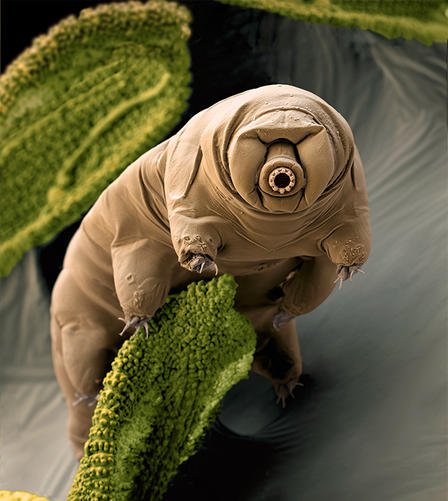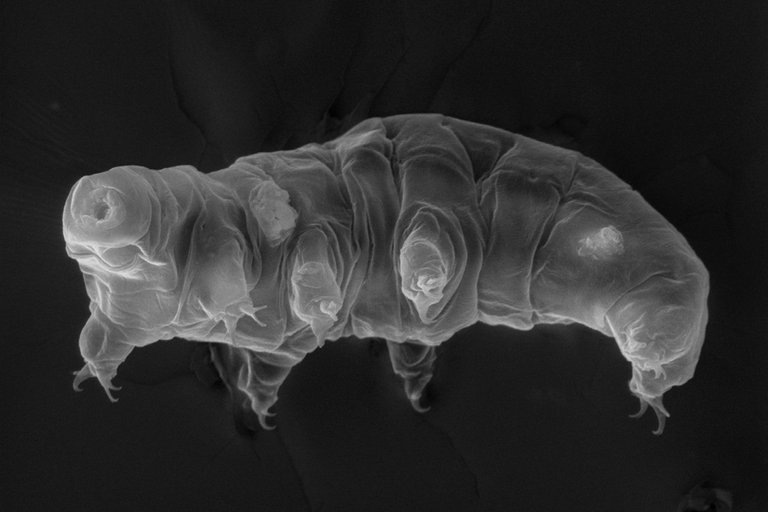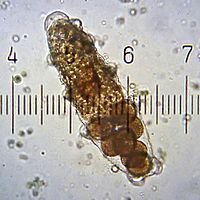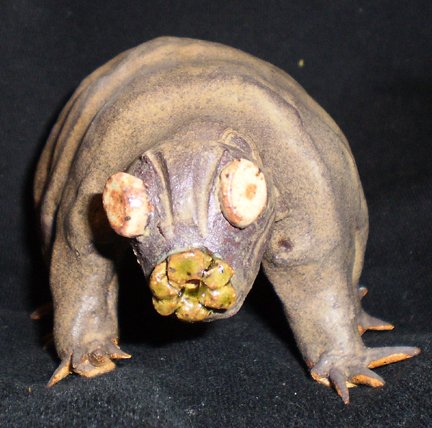
Boil them, freeze them, crush them, dry them out or blast them into space.
Tardigrades (water bears) will survive it all and come back for more!
These amazing creatures can live just about anywhere.
A space mission TARDIS ( Tardigrada in space) was conducted in 2007. Showed that tardigrades can survive exposure to the vacuum of space. Research shows that tardigrades are truly ancient. Fossils of them have been dated to over 500 million years ago.

They can withstand extreme temperatures.
They can survive in environments as cold as -272.8°C (-459°F) . And can withstand temperatures higher than 148°C (300°F).

For most animals, life without water is completely impossible. However, tardigrades can survive extreme desiccation. Research found that tardigrades curl up into a dry shell upon drying. This state is commonly known as TUN, and it resembles closely to death.
These animals amazing creatures can live in TUN state for decades. During Tun state, their metabolic activity gets as low as 0.01% of normal levels.

Tardigrades have unique anti-dehydration proteins, called Tardigrade Specific Intrinsically Disorder Proteins (TDPs) . These proteins exist in jelly-like form in the pressence of water. However, during desiccation these proteins turn into a glass like structure. Protecting all the dehydration sensitive material from harm inside the cells.
In 1995, dried tardigrade we're brought back to life after 8 years. Tardigrades can tolerate ice formation within their cells in extreme cold. They produce chemicals called Ice Nucleating Agents. These agents help them from crystals outside their cells rather than inside. As a result, their vital molecules are protected from cold.

Tardigrades can bear extreme pressures that would squash most animals flat. Under Tun state, they can survive a pressure of 600 megapascals. They can also survive huge amounts of radiation. Tardigrades have a protein called Dsup, which protects them from damaging x-rays . Researchers we're able to transfer that resilience to human cells . Tardigrade- tinged human cells suppressed x-ray induced damaged by about 40% . These findings can one day benefit people undergoing radiation therapy. Tardigrades genome represents great genetic treasures. And we are really just at the beginning.
Thanks for reading..
This information is credited to the Book of Science
Congratulations @mhomie.ennoh! You received a personal award!
Click here to view your Board
Congratulations @mhomie.ennoh! You received a personal award!
You can view your badges on your Steem Board and compare to others on the Steem Ranking
Vote for @Steemitboard as a witness to get one more award and increased upvotes!